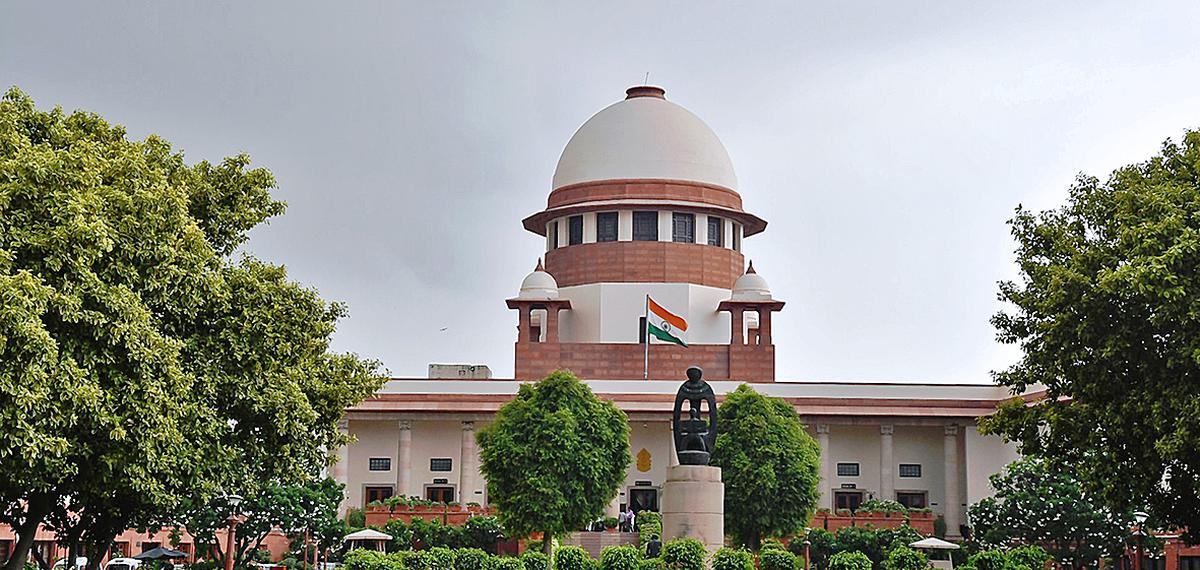NEW DELHI, Sept 8: Observing that a lenient attitude shown by judicial institutions has emboldened unscrupulous litigants to disobey or commit a breach of an order with impunity, the Supreme Court has said courts need not show compassion when contemnors use them as a ”potent weapon” and ”legal trick” to wriggle out of responsibility.
The observation came while the top court was adjudicating a case from the Gujarat High Court, which sentenced five people under the Contempt of Courts Act, 1971 for their deliberate and wilful disobedience of an undertaking given to it in 2015 in a property dispute.
The appellants in the matter proceeded to execute 13 sale deeds in favour of different parties, despite the undertaking given to the high court.
The high court had sentenced three of them to two months of simple imprisonment and asked the remaining two to pay Rs 1 lakh in lieu of sentencing.
A bench comprising Justice JB Pardiwala and Justice Manoj Misra said fake apologies should not be accepted and the court was not bound to accept the apology tendered by the contemnors and that apologies thus tendered should be unconditional, unqualified and bona fide.
”Apology is not just a word. The court should not accept the apology when it appears that saying sorry is nothing but a legal trick to wriggle out of responsibility. A true apology must be a deep ethical act of introspection, self-introspection, atonement and self-reform. In its absence, an apology can be termed as farce.
”The apology tendered should not be accepted as a matter of course and the court is not bound to accept the same. The apology may be unconditional, unqualified and bona fide, still if the conduct is serious, which has caused damage to the dignity of the institution, the same should not be accepted,” the bench said.
The top court said there ought not to be a tendency of courts to show compassion when disobedience of an undertaking or an order is with impunity and with total consciousness.
It said the sanctity of judicial proceedings is paramount to a society governed by law.
Otherwise, the very edifice of democracy breaks and anarchy reigns, it added.
Dismissing the appeal filed by the contemnors, the bench granted two weeks’ time to the appellants to surrender and serve out the sentence as imposed by the high court.
It said the object of the discipline enforced by courts in case of contempt of court is not to vindicate the dignity of the court or the person of the judge, but to prevent undue interference with the administration of justice.
”Any interference with the course of justice is an affront to the majesty of law and the conduct of interference is punishable as contempt of court. Public interest demands that there should be no interference with the judicial process and the effect of the judicial decision should not be preempted or circumvented.
”If a party, who is fully in the know of the judgment or order of the court, is conscious and aware of the consequences and implications of the order of the court, acts in violation thereof, it must be held that disobedience is wilful,” the bench said.
To establish contempt of court, it is sufficient to prove that the conduct was wilful and that the contemnor knew all the facts that made it a breach of the undertaking, it added.
”The Act of 1971 is intended to correct a person deviating from the norm and trying to breach the law or assuming law on to himself. It intends to secure the confidence of the people in the administration of justice by disciplining those erring in disobeying the orders of the court or undertaking given to the court.
”We may take judicial notice of the fact with all humility at our command that over a period of time, the courts have shown undue leniency and magnanimity towards the contemnors. This lenient attitude shown by the courts over a period of time has actually emboldened unscrupulous litigants to disobey or commit a breach of the order passed by any court or any undertaking given to the court with impunity,” the bench added. (Agencies)
Trending Now
E-Paper


